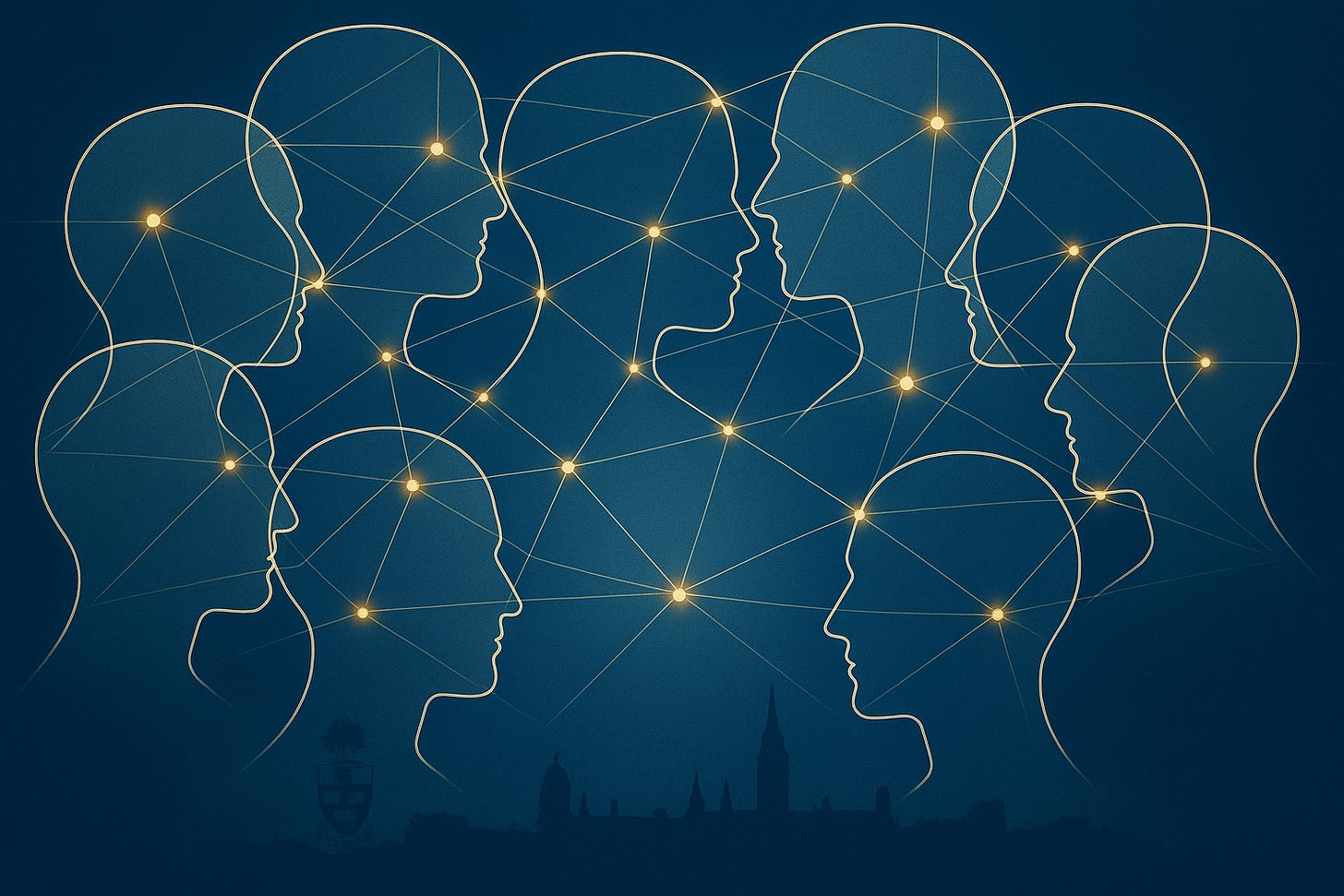Draft description of my seminar on Artificial Social Intelligence
What can sociology add to the creation of novel forms of intelligence? If intelligence is inherently social, the answer is: a lot.
Here is a draft description of a seminar I plan to offer at the University of Toronto in the Winter. Feedback is welcome, especially with regard to possible readings and experiments!
Beyond the Singularity: Building Artificial Social Intelligence. A Graduate Seminar on the Sociological Foundations of AI
The current ambition in artificial intelligence is to build a god: a singular, all-knowing super-intelligence. This seminar begins from the proposition that this goal is not only misguided but also ignores a fundamental truth established by classical sociology: intelligence is social. We will advance the proposition that true superintelligence (often referred to as ASI), should it ever exist, will not be a monolithic entity, but a fundamentally social and distributed system.
We will seek to dislodge the prevailing image of Artificial General Intelligence (AGI) — a gigantic individual mind — for a richer and more generative concept: Artificial Social Intelligence (ASI). We will explore the idea that the future of AI lies not in isolated "superminds," but in networks of intelligent agents that must learn to creatively and situationally understand, coordinate, and compete with each other and with us. While computer science often approaches this topic through Multi-Agent Systems (MAS), our focus is distinct and complementary; we will use classical sociology as a launching point to reimagine AI, focusing on the underlying capabilities and orientations that make multi-agent interaction possible and more or less effective.
Our sessions will be highly interactive, combining deep dives into social theory with practical experimental design. We will engage with foundational sociological texts on topics such as:
· The social nature of intelligence and the nature of social intelligence
· The effect of social organization on individual capabilities
· The structure and dynamics of scientific and artistic communities
· The social conditions of creativity
· The social origins and functions of values
· The nature of social order and the forms of social interaction
Building on these theoretical discussions, we will collaboratively design experiments to:
a) Evaluate the inherently social nature of current AI models against novel benchmarks. b) Develop and assess methods for enhancing the social capabilities of these models. c) Measure the impact of improved social intelligence on outcomes in fields like medical diagnosis and complex problem-solving. d) Contribute to the sociological re-engineering of AI architecture, potentially offering new approaches to unsolved problems like the "credit assignment" challenge in multi-agent reinforcement learning (MARL). Throughout, we will explore the implication of results for ongoing challenges in AI system design, such as “alignment” and “sycophancy."
We will not just design these experiments; we will conduct them. A key component of this seminar is hands-on access to a unique platform for ASI research we are developing. No advanced technical background is necessary to participate, and your work will directly influence the platform's evolution.
At the same time, the seminar will explore how the effort to build ASI feeds back to enrich social theory. The act of translating our concepts into computational models forces a high level of analytical rigor, exposing ambiguities and inspiring refinement. This process can yield more dynamic social simulations, but its value is more fundamental. By attempting to construct the social from the ground up, we create a powerful new context for testing, extending, and innovating in sociological theory itself.
To further enrich this experience, this seminar runs in parallel with a complementary course in the Faculty of Information, which will focus on technical operationalization and implementation. Participants are strongly encouraged (though not required) to attend both and to form teams that unite sociologists with engineers and computer scientists.


